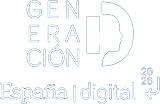09/06/2022
CRACKS of technology’ is a weekly series of interviews, through which we want to give voice to those IT professionals who are absolute geniuses of technology in Spain. We want to hear from them, to know and recognize the work they do in these companies; to know what they are passionate about and what advice they have for those who will come after them.
In digital transformation, perhaps the most difficult part is moving from theory to practice or, as the wise saying goes, from the muses to the theater. Where do I start, what technologies do I really need, what steps do I need to coordinate for the transformation plan to be effective?
Today we talk to Agustín Pozo, from Nokia, about how to tackle the great challenge of the technological revolution. This Spaniard leads the Digital Transformation unit of this multinational, which has become one of the world’s largest providers of communications technologies…, and one of the leading players in digital transformation projects at national and international level.
Read on, because there’s nothing left of the Nokia that used to make commercial cell phones…
Q.- If this interview were a digital transformation project, where do you think we should start talking?
A.- I would suggest starting with the first major requirement, and that great forgotten one in every digital journey: the lack of integral vision. According to McKinsey, 60% to 70% of projects fail due to lack of vision. It is essential to define well the integral vision because from it we will draw, point by point, the digital transformation journey.
It all starts by asking yourself a question: what is your objective in three years’ time? do you want to be a leader in this segment? do you want to enter a new line of business? do you need to enter another country? do you want to reach a new customer profile? do you need to stop the talent drain? what are your current problems to be solved? do you have a new business line? do you have a new business line? quick wins that you would like to launch to generate internal traction and external visibility…
Q.- And then?
Based on well-defined objectives, the success of projects has a lot to do with the alignment of all managers. At the end of the day, the digital transformation strategy to be defined should impact not only on Technology (CIO/CTO), but mainly on the Strategy and Business department, on the Human Resources department, on Purchasing and Sales, on Marketing, Communication ….. In addition, the person in charge of Digitalization -if there is one- usually occupies the same level in the hierarchy as the directors of all these departments, which can sometimes generate a lack of speed due to differences of opinion among equals, which does not favor agility and commitment to the design of a complete Digital Transformation strategy, which touches all the necessary areas, and its launch and implementation. Each of these different phases has its intrinsic complications, hence the commitment of all involved is key, and to the very end.
That is why it is essential to have the support of a leader and that the entire steering committee – or the Council of Ministers, if we are talking about a government – acts as a unit. In these cases, I usually recommend the creation of an “A-Team”, which led by the CEO of the company (president or responsible minister, in case of a government) as the maximum internal sponsor, has the key profiles of its Management Committee in said maximum team responsible for the definition and execution of its digital transformation strategy.
Q.- Tell us about your responsibility at Nokia. We know that some time ago you were nicknamed “The Bridge”?
A.- (laughs) Yes, it is true. I think it is the result of my more than twenty years working out of the box. The truth is that it generates in me a mixed feeling of flattery and pride, but above all, of great responsibility. My fundamental work consists of acting as a great “trust Advisor” for Management Committees in multinationals and governments.
A very important part of my job is to collect and analyze the short and long term problems of our clients. To this end, we hold various meetings, sessions and workshops with different members of a Management Committee. In these sessions, as they share with me their difficulties, intentions or objectives (always business and social) I put on the table the different types of technologies, existing solutions and technological disruptions that would be more aligned to overcome these current difficulties and achieve their future goals.
The idea is to outline a specific technological roadmap for each client or government, defined on the basis of their needs, whether they are to transform a traditional business model into an exponential one or to generate jobs or attract foreign investment, in the case of governments.
On the other hand, with the information exchanged and analyzed about needs and objectives, I take care of designing, presenting and directing the execution of your digital transformation journey. An absolutely turnkey path, formed by different technological projects, ordered, and designed to be the main strategic asset (along with people) to support your specific needs of digital business transformation and your vision of the future.
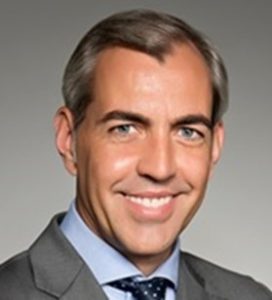 Agustín Pozo.
Agustín Pozo.
It is a ‘Top – Down’ job: we collect strategic objectives from the Presidency or the Management Committee, and we land the journeys. in “end-to-end” plans that involve everything from technology to people, their training, innovation, etc.). We also help each of the members of the steering committee – or ministers – to determine where the focus should be, so that all the pieces of the puzzle fit together. For example, an HR director should consider whether his or her focus should be on reducing the average age of the workforce, or on providing social benefits to senior staff, or on creating re-skilling and personal development plans, etc.
In short, yes, we are a “bridge” between a Management Committee and their needs for the future digital transformation of their business or the government of a country and its Digital Agenda, and the technology they will require to successfully transform and achieve their future goals.
Q.- Do you keep the nickname?
A.- Now they call me “the gargoyle”! It comes from my dear colleagues in Latin America, who usually, in their afternoon schedule (-6h or -8h difference with the schedule here in Spain, being here already in the early morning) still see me “connected and in green” in the internal tools due to the different sessions with clients there… The gargoyle that takes care of them from Spain day and night, they tell me 😉.
Q.- As a profession, do you find it rewarding?
A.- I am very fortunate. I travel all over the world to meet with very interesting people, top level and great experts in strategy, multinational management or ministers committed to the social and economic development of their countries, whom I try to help through technology. These leaders trust me and contact us to talk about what technology can do for them and how to articulate everything so that these technologies generate the desired impact, thus having the opportunity to work with them, and land together their strategic roadmap, based on technology, for the transformation of their businesses or societies, through the signing of strategic agreements and contracts for several years of collaboration.
Moreover, there is no such thing as routine in this job. Each project is different because the cultures of the organizations or countries are also different. And what can we say about the variety of available and constantly evolving technologies? We have different social projects in Latin America, for example, whose ultimate goal is to transform countries and their societies, improve the lives of all people, and develop the regional GDP through the generation of employment and the attraction of international investment.
We are leading entire social transformations through the strategic definition of a comprehensive digital transformation journey for governments such as El Salvador and Peru, among many others. by illuminating with our global leadership in next-generation LTE and 5G networks (let’s not forget that Nokia is, today, the only company with a 5G network presence in five continents) to reduce the digital divide in these countries. Or the more than 450 private LTE networks that Nokia has delivered to support the Digital Transformation of multinationals towards Industry 4.0?
What more could I ask for?
Q.- We wanted to interview you for a reason!
A.- I can only be grateful to have had the opportunity to learn so many things from top profiles in different subjects and countries. From having had the opportunity to work side by side with top executives of global multinationals and governments in more than thirty countries. To have the opportunity to work directly for the top executives of our company, to learn from all their experience and knowledge, and to be able to repay their trust through the creation of the new projects, partnerships and long-term contracts that we are signing as a result of the work that I am honored, and proud, to lead at Nokia today.
And why not to say it, from the utmost humility: grateful and overwhelmed equally for having received different international awards and Market recognitions, such as: Award for the Best Digital Transformation Project by the EOA (Europe Outsourcing Association) in 2011, having been chosen as one of the Top Most Influential Digital Leaders in Spain in 2021, chosen through the analysis of an external company in Israel as Top 10 Speakers at DES2021 (Digital Enterprise Show, leading global event in new business strategies and digital transformation for Enterprises), having been selected several years as a Mentor in Promociona, being selected as Opening Session Keynote Speaker at the Global IA Summit in Berlin in 2019, of the Global Marketing Summit in Israel in 2018 or having received the Confidence of entire governments that are signing the Digital Transformation Strategies that I have developed and presented them …to name a few, as well as different internal awards at Nokia.
I can only be grateful, and looking forward to giving back to the market everything I have received from it for more than twenty years.
Q.- You are a very restless and sociable person, it could be said that you break with the stereotype of the IT professional. What profile do you think is required to do this work of ‘bridge’ between political or business leaders and technologists?
A.- A very versatile profile, with experience in different environments and with good soft skills. It is about being able to talk, in a climate of trust, with presidents of governments, ministers and CEOs of companies, but also with middle management, IT or technology managers, and with experts in very specific tools. For that, I think you have to know and have experience in both business strategy and the execution of technology projects, and have the ability to see things as a whole, apart from mastering different registers, from technology to business, and intensities, from high-level strategy to detail of the plan to be executed. I’m telling you, it’s exciting. I am not bored at all!
In my case, I am an economist and MBA by training. During the last year of my degree I did an internship at the Internet portal ‘Canal 21’, where I had the opportunity to see what is behind online communications, and I fell in love. When I finished my studies I set up several technology start-ups to finally take the step to the multinational. So I have been leading the digital transformation of business for more than two decades, working from the technology world.
Q.- What is left of that young ‘startapero’?
R.-. From my beginnings where we lived in a constant maelstrom, launching new technology-based services to cover different business needs of our clients on a monthly basis, it imprinted in me a certain way of working. Maybe that’s why I try to make the most of every hour of the day, working “following the sun” to cover schedules and clients, from Asia, EMEA and America, without defined working days, to try to reach more places, connect with more people and evangelize in all possible events about the opportunities that technology opens up for us. I hope I never lose that start-up “hunger”.
Q.- With respect to the continuous training required to engage in digital transformation, what would you suggest?
A.- It is essential to be up to date. That is why, in the last six or seven years I have taken postgraduate training in innovation and digital transformation at IE Business School (2014/2015) and another postgraduate course on Artificial Intelligence at MBIT (2018/2019); it is always important to have good training to add to your experience, to update and enrich yourself to keep growing. In this regard, let me share that I am a fervent believer in “learnt-ability” (the need and continuous commitment to your training and growth) as one of the The most important digital skills to cultivate in the daily lives of all of us.
I also give classes to students in different business schools, both in Spain and Latin America, to whom I logically talk a lot about Nokia…
Q.- And what do you tell them?
A.- Many people don’t know that Nokia started out selling paper. Then he made boots, tires and even bullets during the war. Then came TVs, cell phones, networks… and now we are leading the way in next-generation communications around the world; 5G, LTE, etc.
Throughout its 157-year history, Nokia has reinvented itself “n” times. It has bought and integrated businesses, has spun off others, has had to undertake reorganizations…, and is still there, as a real benchmark in digital transformation. In addition, although there are many ways to do business and survive in the market, it does so by following ethical values, being recognized, for the fourth consecutive year, as one of the 100 Most Ethical Companies on the Planet. In my opinion, this is very commendable.
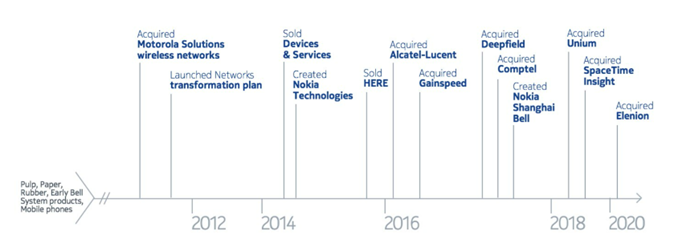
Source:
https://www.nokia.com/about-us/company/our-history/
Q.- Technologically speaking, what differential value do you think Nokia currently offers?
A.- In terms of innovation, let’s not forget that Nokia’ s Bell Labs have invented many of the pillars of communications in the world – fiber optics, lasers, cellular communications, the first satellite communications, radio waves… -. No less than nine Nobel laureates have passed through there. I am not exaggerating when I say that at Nokia we are currently developing some of the best technologies in the world in fields such as 5G, LTE or Virtual Private Networks, critical infrastructure communications and telepresence. I firmly believe this. We offer an end-to-end communications portfolio, being the only company with an integrated portfolio of fixed and mobile access, with commercial presence in the five continents.
Of course, in other technological areas our portfolio is limited and within an open journey of digital transformation we will have to resort to third-party solutions. ¿Y? In fact, I believe that another of our differential values is that we do not limit ourselves to sending our commercial catalog, but we design complete journeys in which we detail all the steps to be taken and we schedule all the technologies that should be integrated, whether they are ours or from another company. The technology sector has internalized coopetition (collaboration + competition) better than anyone else and, particularly at Nokia, we know that the best results are achieved by acting as an ecosystem.
For Nokia, on the other hand, the commitment to digitalization projects brings significant value because it allows us to move from acting as a “network supplier” to being recognized as the “strategic partner for Digital Transformation” of our customers. All this enables our company to open new strategic business in multi-year agreements with these customers. A clear win-win, I would say.
Q.- What advice would you like to pass on to young people who are thinking of developing their career in the ICT sector?
A.- That technology is key to the development and future of any company and government. To accelerate its transformation and to be able to address new businesses and models, to develop and implement exponential growth tools, both business and social.
Have fun with it. They should not see it as a “job in itself”, but as a wonderful opportunity to work in a sector as important and changing as this one, which leads (and will lead) our future. All of us.
Oh, and don’t forget that technology is the most important enabler, along with people, for all these transformations and future models, so don’t be misled into thinking that technology “is the customer’s goal”, but “only” its enabler to achieve those goals. That is why I suggest you enrich your technological training with other subjects such as Strategy, Business Models, Innovation, People, etc., to be able, in the future, to interact with different types of executives and profiles.
Q.- We are aware of your involvement with diversity in the ICT industry, as vice-president of EJE&CON (Spanish Association of Female Executives and Board Members). Do you have any final advice for young boys and girls reading this interview, regarding gender equality?
A.- EJE&CON is a leading and very inspiring association in Spain. It is full of top executive women (+1,200 IBEX35 members, and some men too!) who selflessly dedicate their available time to fight for the development of genderless and generation-free talent, through different activities, programs, forums, trainings, etc. It is a great pride, and responsibility, to have had the opportunity to have been elected as the new Vice President of Digital Innovation and a member of its Board of Directors in 2021.
So, as a final message, I would like to emphasize EJE&CON’s commitment to the development of women in the technological field and in management committees, in order to contribute to catalyze a cultural change where we all have a place. I firmly believe, and I hope the young men and women agree with me, that gender synergies are fundamental for the development of the socio-economic space, competitiveness and the generation of benefits at all levels.




